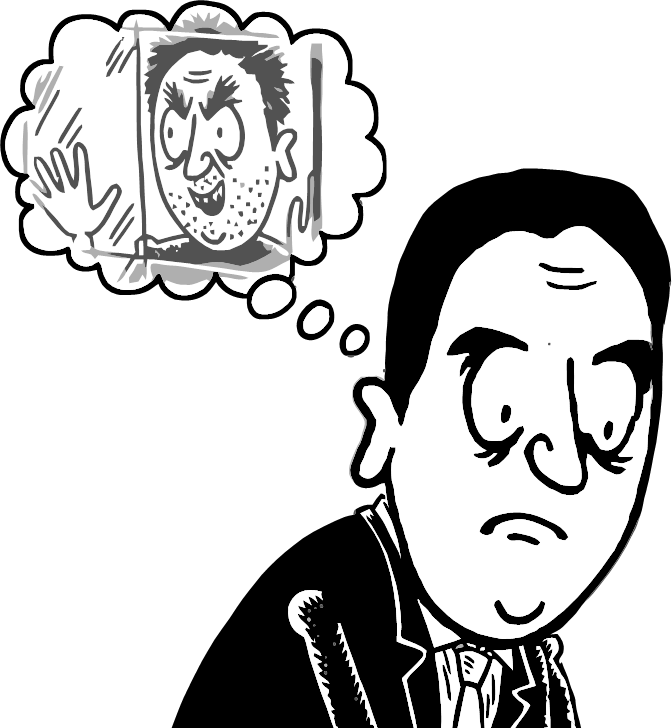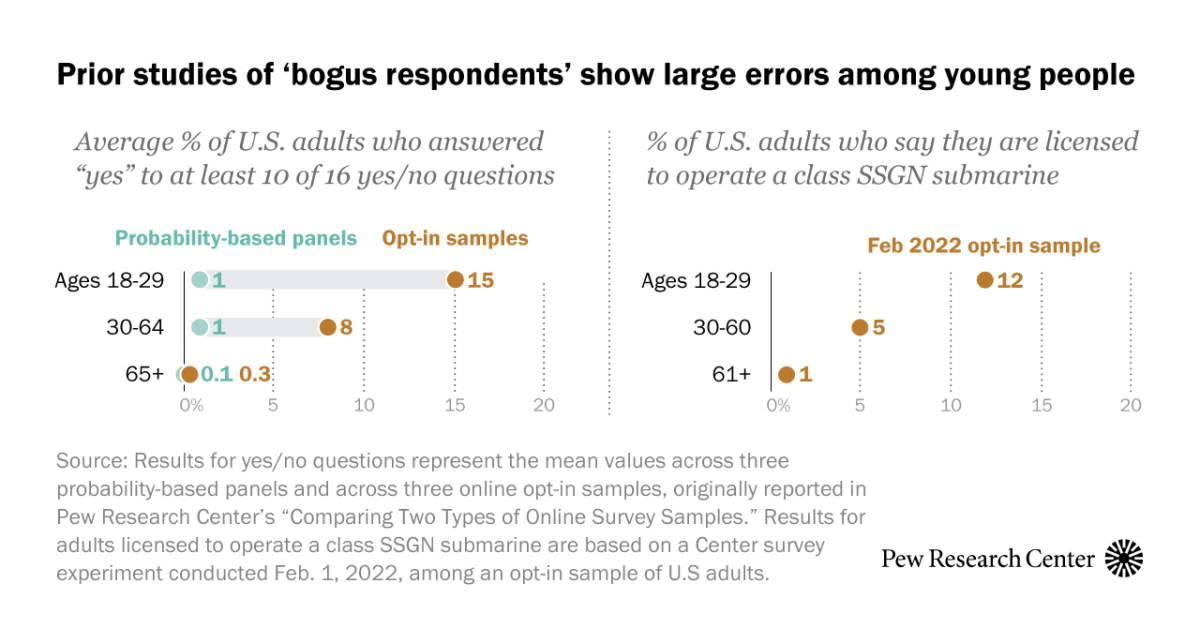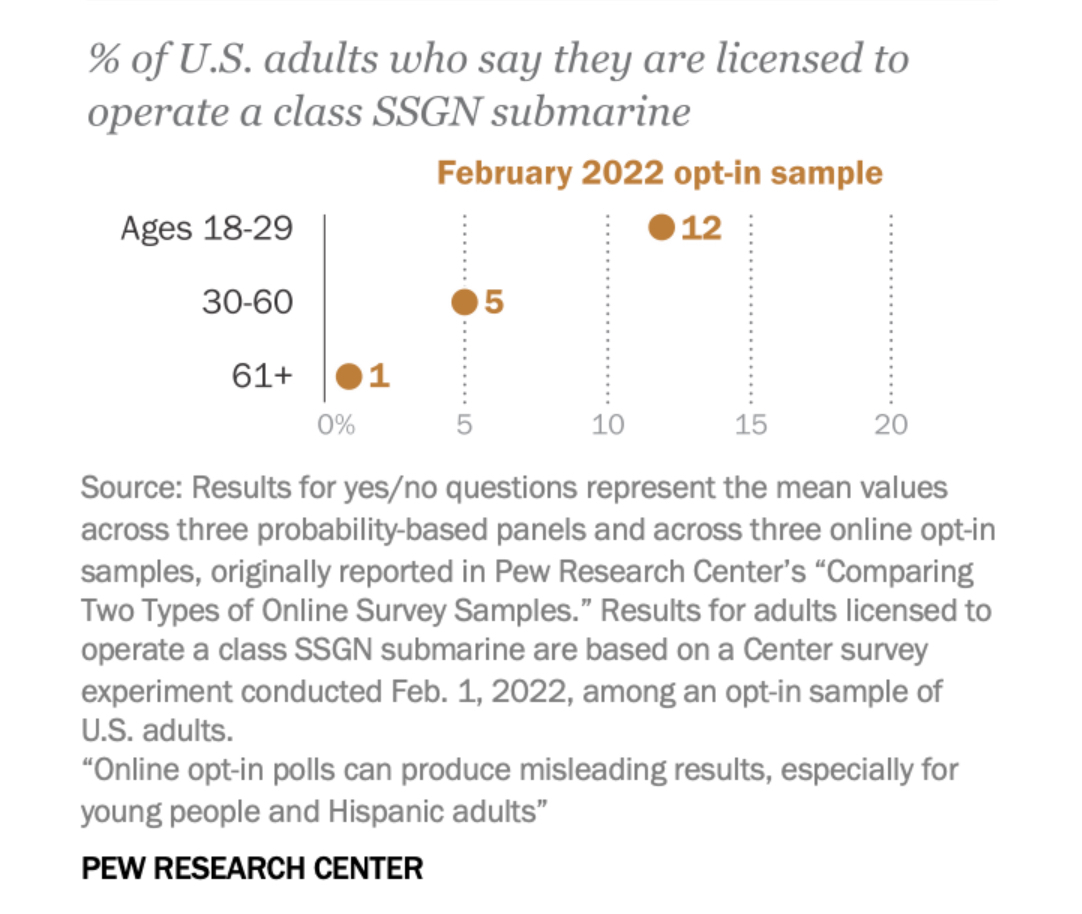There was an opt-in survey in from YouGov & The Economist that seemed to show a fifth of young Americans denied the Holocaust. The Economist ran a piece on it.
Well, Pew Research did a random sampling and found completely different and far less worrying results.

Alternative analysis: only youngins do a little trolling

edit: but do not troll about the holocaust, please.
it's mostly unintentional, article basically says it's paid surveys where people select random answers without even reading the questions to get a reward.
Studies have shown that bogus respondents can cause opt-in surveys to overestimate rare attitudes and behaviors, such as...support for political violence.

This is very important to realise. For instance in South Africa, opt in opinion polling done by the Cape Independence Party and Victory Research shows that the majority of the people of Western Cape support Cape Independence (you can see this on their highly misleiding and obviously curated Wikipedia page), yet in reality the Cape Independence Party failed to get enough signatures to even appear on the ballot. They got 200 of the 7000 signatures required. The Cape Independence Party claimed previously to have over 80 000 signatures, yet there is no proof of these signatures anywhere.
Love the nuclear submarine licensure thing.
Not only does every citation of a poll need to repeat the exact question the respondents were asked, every poll citation needs an accompanying number representing the number of people who gave an absurd answer to a planted question. If you really want to tell me how many people deny the Holocaust, you should tell me how many of those people answered "yes" to the question "I will never and have never responded to a poll question" and "are birds apples?"
Those questions will get SIGNIFICANT positive responses basically every time.
Those questions will get SIGNIFICANT positive responses basically every time.
kind of significant, but in polling with good methodology it's rarely crazy, depending on how funny people think the answer is (i.e. there's a study from 2013 saying "4% of americans believe lizards run the country". not sure how it was run). also, the proportion of people giving an absurd answer to an absurd question isn't necessarily indicative the same proportion lie on other questions. like, you can be honest on serious stuff but choose to troll when you see a question about eating tide pods
the graph above the submarine graph has only up to 1% of people from all ages lying in a solid, random-sampling based poll. it's shitty opt-in paid surveys that are the problem, people are recruited via ads or social media and rush through without reading the questions, which is exactly where the 20% holocaust denial figure comes from
I understand how this would be hard for us to recognize, since 50-60% of Hexbear users are licensed to operate a class SSGN submarine.
Did they count percent of respondents who didn't deny the Holocaust, but approved of it?
The margin of sampling error for the full sample of 5,140 respondents is plus or minus 1.7 percentage points.
https://www.pewresearch.org/politics/2024/02/29/policy-priorities-2024-methodology/










